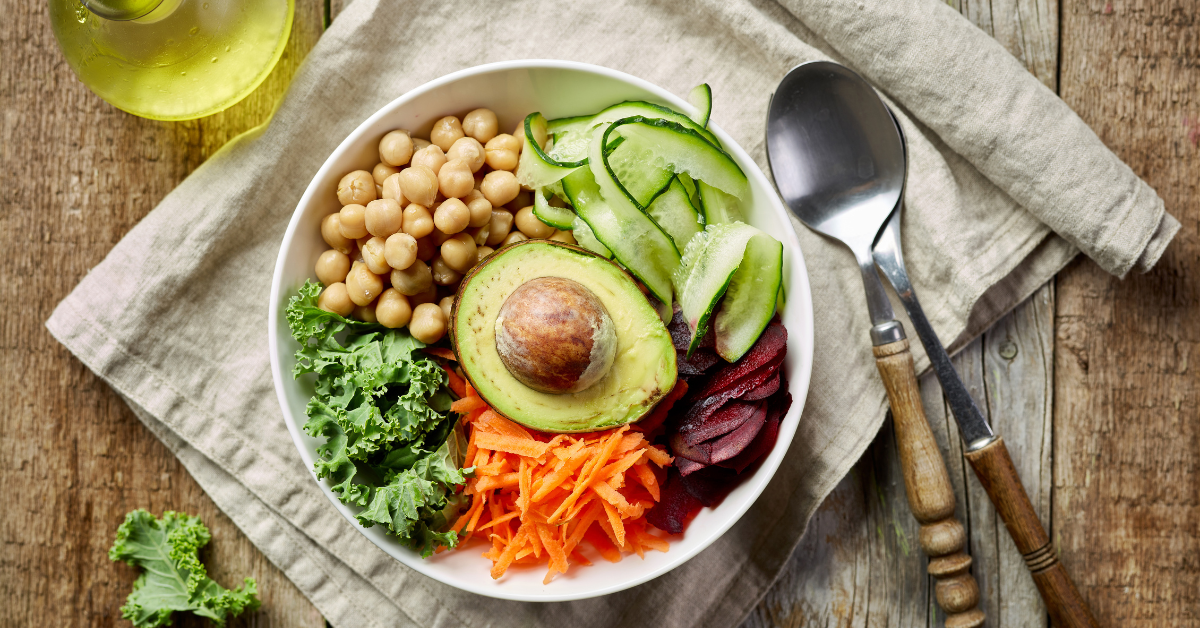The link between a balanced vegan diet and improved symptoms in women suffering from Polycystic Ovary Syndrome has now been widely demonstrated by numerous scientific studies.
In this article, we will investigate what the scientific literature says about the link between diet and polycystic ovary syndrome.
Specifically, we will cover the following points:
- PCOS: The Data at Hand
- Polycystic Ovary Syndrome and Dietary Goals
- Naturally Supplement with Plant-Based Foods!
- PCOS and Golden Rules
- A Typical Day for Someone with Polycystic Ovary Syndrome
- PCOS and Lifestyle
-
PCOS: The Data at Hand
PCOS (Polycystic Ovary Syndrome) is closely linked to lifestyle and dietary factors such as body weight, insulin resistance, inflammation, and oxidative stress. Moreover, these factors often influence one another.
Studies have shown that 30-75% of women with PCOS also experience obesity or central fat accumulation. As a result, a weight loss of 5-10% can significantly improve symptoms for these women.
Reducing body fat mass leads to lower androgen levels, one of the main hormonal imbalances and a key source of symptoms in women with PCOS. [1]
If you want to learn more about the causes and symptoms of Polycystic Ovary Syndrome, you can find the information in the article
Polycystic Ovary Syndrome (PCOS): Common Symptoms and How to Recognize Them Early.
-
Polycystic Ovary Syndrome and Dietary Goals
Let’s take a closer look at the dietary goals we can set to improve quality of life and more effectively manage the symptoms of PCOS.
The first point to start with is weight control and insulin resistance. This can be achieved by following a ow-fat diet primarily based on plant-based foods.Several studies have highlighted the benefits of this type of diet. Let’s examine them together:[2] [3] [4]
The second factor we can act on is the reduction of oxidative stress and inflammation.
But how can we achieve this?
By prioritizing, for example, fruits, vegetables, whole grains, and legumes, which help lower markers of oxidative stress.
Another recommendation is to avoid processed foods, refined sugars, and animal products to minimize oxidative by products. -
Naturally supplement with plant-based foods
Some compounds naturally found in plant-based foods are excellent allies against PCOS.
Let’s look at two examples:
Inositol (recommended dose: 2-4 g/day).
It is present in whole grains (brown rice), legumes (beans and peas), fruits (melon, banana), and nuts. [5]
It provides numerous benefits to our body, such as improving insulin sensitivity, reducing androgen levels, and supporting ovulatory function in both lean and obese women.Chromium (recommended dose according to guidelines: 25 μg/day up to 200–1,000 μg/day).It is found in whole grains, potatoes, green vegetables (broccoli), fruits (pears and apples with skin, grape juice, oranges), and nuts (Brazil nuts, dates).
Consuming chromium-rich foods improves insulin sensitivity, increases the chances of ovulation, and reduces hirsutism. -
PCOS and Golden Rules
Now let’s look at some golden rules that will help you live with PCOS!
- Eliminate processed foods and refined sugars from your diet.
- Limit or completely avoid animal fats and saturated fats (watch out, coconut also contains saturated fats!).
- Oil isn’t necessarily your ally! Learn to season your dishes differently using spices, vinegar, soy sauce…
- Also try to limit “healthy” fats, such as those from fish, avocado, and nuts
If you decide to switch to a predominantly plant-based, low-fat diet, don’t forget to:
- Supplement with vitamin B12 in the form of cyanocobalamin (maintenance dose: 1000 μg twice a week or 50 μg/day);
- Take an omega-3supplement in the form of EPA or DHA, preferably of algal origin. On a low-fat diet, it can be difficult to meet the daily requirement of these nutrients solely through food sources (flaxseed oil, ground chia seeds, walnuts, salmon, trout, and herring).
-
A Typical Day for Someone with Polycystic Ovary Syndrome
According to the guidelines, nutrients should be divided as follows: starches 60-65%, non-starchy vegetables 20-25%, fruit 10-15%, natural fats less than 5%
Let’s now look at a typical day in a schematic way: [6][7]
Breakfast
Whole-grain bread with a spread made from nuts or seeds (half portion, about 15g), plant-based milk or yogurt, fruit
Morning Snack
Vegetable and/or fruit smoothie
Lunch
Whole-grain pasta/rice/cereals with sauce, legume soup, raw vegetable crudités
Afternoon Snack
Fruit
Dinner
Mashed potatoes, vegetable burger with roasted vegetables on the side, fruit
-
PPCOS and Lifestyle
Here are some guidelines to help you improve your lifestyle:
Regular physical activity: improves insulin sensitivity and supports both metabolic and mental well-being.
If you want to learn more about the effects of nutrition and exercise related to Polycystic Ovary Syndrome, you can find the information in the article:
Polycystic Ovary Syndrome: Nutrition and Exercise for Managing the Syndrome.
Quit smoking: essential for reducing oxidative stress and inflammation; consider targeted counseling if needed.
Screening for mood disorder:: mental health is important too! Consulting a mental health professional can help manage the condition more effectively.
Family support: amilies should adopt a similar lifestyle and dietary habits to support the patient.
With PCOS, as we all know, there is no cure. We have to learn to live with it. Fortunately, science is on our side. With the right support, proper supplementation, and the appropriate dietary and lifestyle adjustments, it is possible to alleviate and manage its symptoms, improving not only physical health but also psychological well-being.
From this desire to help as many women as possible, and from our personal involvement, we decided to create a product that is not the usual supplement with the same old active ingredients, seen and reviewed countless times, but a 100% Made in Italy, complete solution that makes us, and all other women, feel beautiful and well!
Share this article with the women you care about! You might help them more than you think!
Let’s grow this community and support each other.
With LOove,
Dr. Lydia Viviana Falsitta
If you’re looking for practical advice on managing PCOS, endometriosis, or other chronic female conditions, follow us on Instagram and TikTok and subscribe to our newsletter for exclusive content and support!


